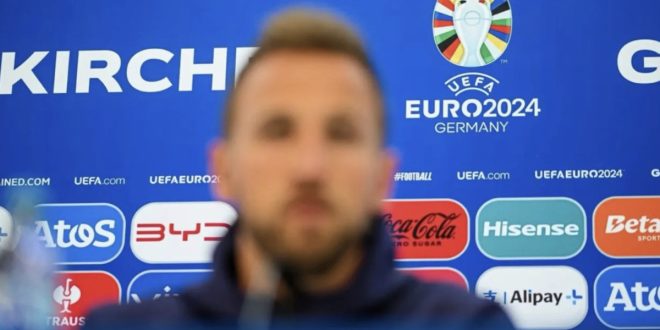
Football sponsorships provide high visibility for operators and much-needed funds for clubs and leagues. Yet betting sponsorships are at risk of being frozen out following regulatory moves in the Netherlands, Belgium and France.
The partnership between football clubs and gambling companies in Europe has long been a fruitful one but increasingly onerous regulation means both sides are having to get creative…
The gambling industry has been by far the most active sponsor in the European football market in recent years, with 42 unique team deals across the top 10 leagues in 2023/24, worth an estimated annual value of over £100m, according to analytics firm Global Data.
The benefits to both sides are clear; regulated gambling operators get access to a highly-engaged football audience and the clubs maximise revenue potential. Operators have often been prepared to overpay clubs, with analysis from The Sponsor suggesting many have invested more than ‘fair market value’.
The industry magazine says Aston Villa’s £40m sponsorship deal with Betano represents a £13.6m increase over the club’s fair market value of £26.4m, while Nottingham Forest’s £14m agreement with Kaiyun Sports is more than double the club’s fair market value of £5.2m.
A changing landscape
But the landscape is rapidly changing across Europe, with restrictions on gambling advertising coming into force in many countries, including the Netherlands, Belgium, France and England.
The ban on gambling sponsorships in the Netherlands, which comes into force on July 1, is feared to have far reaching impacts on Dutch clubs, with estimated losses of €70m. All but one of the 34 professional clubs have deals with betting partners and the smaller teams are expected to be particularly badly affected.
For operators, limits on advertising are already stringent in the Netherlands, with a ban on TV, radio and out of home. This, tallied with stricter player protection measures implemented last October and gambling tax rising to over 34% in January is creating a difficult environment for operators, according to Steven Vrolijk, Managing Partner at XY Legal Solutions and founder of the affiliate kitemark group, QMRA.
“Many companies are struggling to cope with the high compliance and tax burdens,” he tells Gaming&Co. “Land-based operators are collapsing, and online operators are surrendering their licences; recent examples include LiveScore Bet and Tombola.”
And they are unlikely to be the last operators to exit the Netherlands market unless regulations are eased, Vrolijk warns.
“The tax burden in the Netherlands is exceptionally high and compliance costs are steep and often unpredictable, as regulations frequently change,” he says. “Given the current regulatory climate, it would not be surprising if more operators decide to withdraw from the market at some point.”
In a report released last week, the Dutch regulator, KSA, rather than a trade lobby group, admitted that while measures such as monthly deposit limits protect players, GGR for legal operators dropped 10% in H2 2024 and that channelisation rates were much lower than previously thought.
Meanwhile, channelling rates in the market are high at 91%, but the KSA explained that a new calculation method (provided by the Dutch Lottery) that looks at the Google search volume for legal and illegal providers, showed that “the channelling based on GGR is considerably lower than originally estimated”.
The KSA previously estimated it at around 80%, but the new method calculated it at around 60% and following the introduction of the new rules, it has dropped to around 50%. “This means that although the number of players who play illegally is still low, half of the money lost now disappears into the illegal sector,” said the KSA.
Significant impact
There are similar fears in Belgium, where a ban on advertising was passed in July 2023 and came into effect this January. The new regulations have had “a significant impact on the sector”, one industry source tells G&C and “has led to groups (including vulnerable people) being even more exposed to illegal operators”.
Belgium’s regulated operators were not consulted on these measures and while they acknowledge the need for a legal framework, “no country is an island, and ignoring the impact of our new online consumption habits can have consequences that are amplified by regulation”.
Added the source: “In Belgium, for example, the ban on advertising in the Royal Decree widens the gap considerably: legal operators become invisible, weakening the market. As a result, only the public operator and the illegal players remain visible.
A June 2024 study by Yield Sec also showed that Stake, an unregulated brand in the market, led in overall Belgian traffic with nearly 10% of the market, with Unibet in second with 9.2%
“Many of the sports clubs are also in difficult financial situations, they need funds and let’s be honest betting and gambling firms are key sources of revenue for them and their players, staff and other resources,” added G&C’s Belgian contact. This point was also made by France’s former regulator Jean-François Vilotte when the country announced its 15% levy on gambling media spend as part of its 2025 budget.
Beyond football
In England – where 11 of the 20 top flight teams have a betting sponsor – the industry is preparing for the front-of-shirt sponsorship ban in the Premier League, which comes into force ahead of the 2026/27 season.
Some operators are looking beyond football; Super Group, whose Betway shirt deal with West Ham ends this summer, was this week unveiled as the betting partner for Formula 1 team Atlassian Williams.
For others, tournaments and leagues are the focus. Bet365 signed a three-year deal to sponsor the Champions League before the start of this season, while SkyBet’s long-running sponsorship of the EFL in England was extended by five years in 2023.